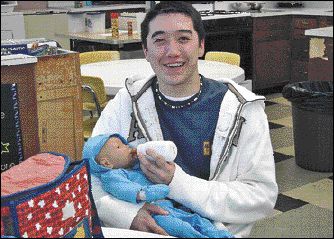
The effect is opposite. The Baby Think It Over dolls were introduced to discourage teenagers from getting pregnant, but Australian researchers have found it has in fact encouraged the girls.
The robo-babies mirror real experience of parenting to teenage girls for a weekend. Researchers said those who have used the lifelike computerized dolls were more likely to get pregnant compared to those who have received less high-tech sex education.
Details of the study are published in The Lancet medical journal.
Author Sally Brinkman said, “The program was supposed to put students off and then they would take extra steps not to get pregnant.”
Brinkman is from Telethon Kids Institute in Western Australia. He added the intervention didn’t work as thought and has increased the pregnancy rates.
Also known as infant simulators, the dolls were developed by former NASA engineer Rick Jurmain some twenty years ago.
Jurmain and his wife founded U.S.-based manufacturer Realityworks. Its pregnancy prevention programs are operational in 89 countries in their schools, churches and community groupso. The robo-babies mimic six-week-old infant behavior like gurgling when burped or crying when hungry.
The dolls were originally developed for school-based sex education programs, but later became a part would-be nannies, new parents and future child-care workers too.
The simulators also track the treatment of the participants like whether the doll has been left without adequate care or left in a car seat for long periods.
Share your views whether such robotic sex-education is still worth when there are tons of other sources to learn. Use the below given comment box.


